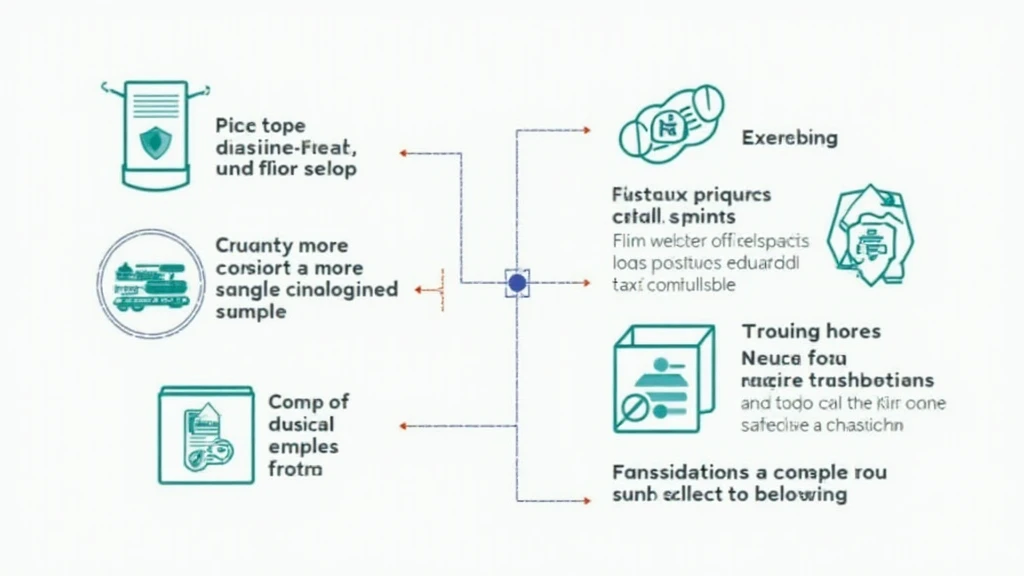Navigating Vietnam Crypto Tax Deduction Documentation
Navigating Vietnam Crypto Tax Deduction Documentation
With the rapid growth of the cryptocurrency market, Vietnam has seen a significant increase in the number of users engaging in digital assets. As of 2023, around 5.5 million Vietnamese people have ventured into the world of cryptocurrencies. But with this surge comes the looming question: how do you handle crypto taxes? In Vietnam, the tax regulations are still evolving, making documentation for crypto tax deductions essential for both individuals and businesses.
Understanding Vietnam’s Crypto Taxation Framework
Before diving into the documentation needed for tax deductions, it’s crucial to understand Vietnam’s overall crypto taxation framework. The Vietnamese government has been cautious yet progressive regarding cryptocurrencies, with the Ministry of Finance actively drafting policies to regulate the sector.
- Current Tax Rates: Cryptocurrency transactions are generally subjected to a 20% corporate tax for businesses and personal income tax for individuals.
- Taxable Events: Selling, exchanging, or using cryptocurrencies for payments can trigger tax obligations.
- Record Keeping: Accurate record-keeping is vital for substantiating your tax deductions.
Essential Documentation for Crypto Tax Deductions
When it comes to filing your taxes in Vietnam, specific documentation is required to ensure you can deduct any applicable expenses related to your crypto activities. Here’s what you need:

- Transaction Logs: Keep detailed records of every transaction, including dates, amounts, and the purpose of each transaction.
- Proof of Purchase: Documentation showing how you acquired your cryptocurrency, whether through exchanges or direct purchases, is vital.
- Income Statements: If you earn income via mining or staking, ensure you have statements detailing this income.
- Exchange Receipts: Any trades or conversions done on exchanges must be documented with receipts.
- Expert Consultation: Given the complexities, consider consulting with a tax professional well-versed in crypto regulations.
Keeping Track of Transactions
Tracking every transaction may seem overwhelming, but there are many tools available to make this process easier:
- Crypto Wallets: Use wallets that provide transaction history.
- Tax Software: Consider using software specifically designed for cryptocurrency tax reporting, like CoinTracking or CryptoTrader.Tax.
- Excel Sheets: If you prefer a manual method, create a spreadsheet to log transactions and relevant details.
Understanding Tax Deductions
Understanding what expenses can be deducted is crucial for minimizing your tax burden. Here are some insights:
- Transaction Fees: Fees paid to exchanges or wallets can often be deducted.
- Cost Basis: Use the ‘first in, first out’ (FIFO) method for calculating the cost basis of your coins.
- Losses: If you have incurred losses, you may offset these against gains to reduce your taxable income.
Common Mistakes to Avoid
Here are some red flags to avoid when it comes to crypto tax documentation in Vietnam:
- Inconsistent Records: Make sure all records are consistent and accurate to prevent red flags from tax authorities.
- Neglecting to Report: Even small transactions must be reported to stay compliant with Vietnamese tax laws.
- Relying on Incorrect Information: Always verify legal guidelines from official sources, as misinformation can lead to significant issues.
Future of Crypto Taxation in Vietnam
The crypto landscape in Vietnam is evolving. As regulations tighten, users must stay informed about emerging guidelines. According to recent studies, it is projected that the number of crypto users in Vietnam will increase by 150% by 2025, making it imperative for users to be up-to-date with their tax obligations. The government is expected to issue clearer guidelines on taxation in the coming years, particularly as the market expands. Staying ahead of the curve will benefit individuals and businesses significantly.
The Importance of Compliance
In conclusion, navigating crypto tax deductions in Vietnam requires diligence and attention to detail. By maintaining organized records and being aware of the regulations, you can ensure compliance and optimize your tax situation. Remember:
- Stay Informed: Regularly check updates from local authorities concerning cryptocurrency taxation.
- Document Everything: From purchases to transactions, good record-keeping is your best friend.
- Seek Professional Help: When in doubt, consult with experts in crypto taxes.
In summary, the intricacies of crypto tax deduction documentation in Vietnam are essential to ensure a smooth experience as you participate in the crypto economy. For more information, visit hibt.com for comprehensive guides related to crypto taxation. The insights provided today can help shape a better understanding of crypto tax obligations in Vietnam, paving the way for a more informed approach.
As the crypto market continues to thrive in Vietnam, being proactive regarding tax obligations will set you apart in this growing landscape. The importance of thorough documentation cannot be overstated and will help you navigate the complex taxation process effectively.
For more insights, check on our article: Read our Vietnam crypto tax guide.
In closing, remember that these guidelines may evolve as the Vietnamese government finalizes its stance on cryptocurrency. Stay connected with us at techcryptodigest for the latest updates and resources on crypto-related tax matters.
About the Author: Dr. Nguyen Hoang Minh, a renowned blockchain consultant and tax specialist, has published over 20 papers on cryptocurrency regulations and has led major audits for blockchain protocols in Vietnam.





